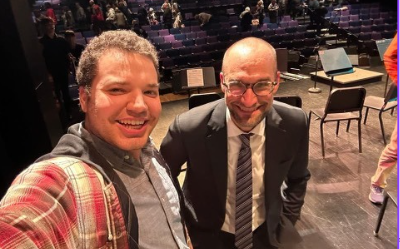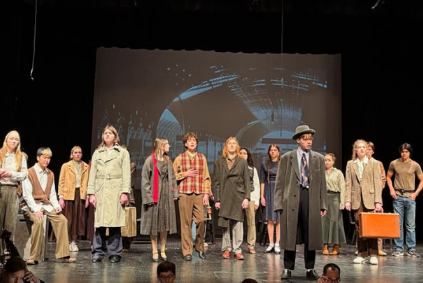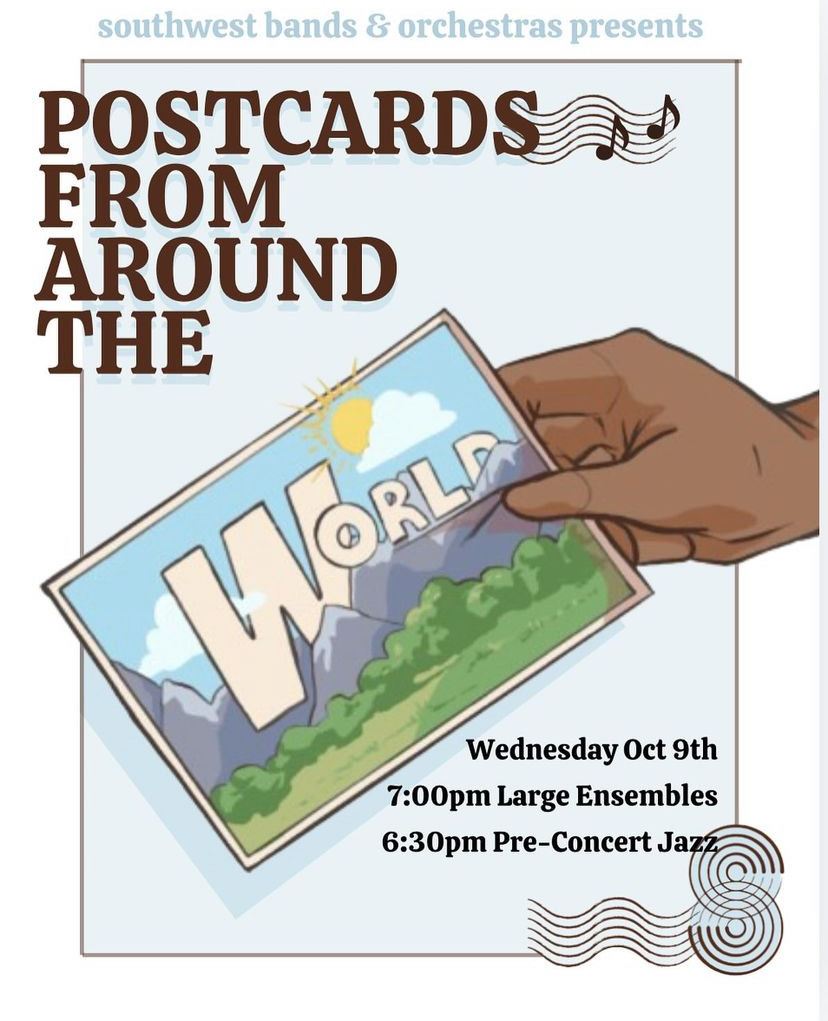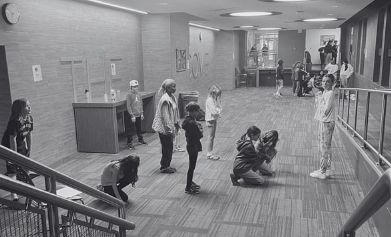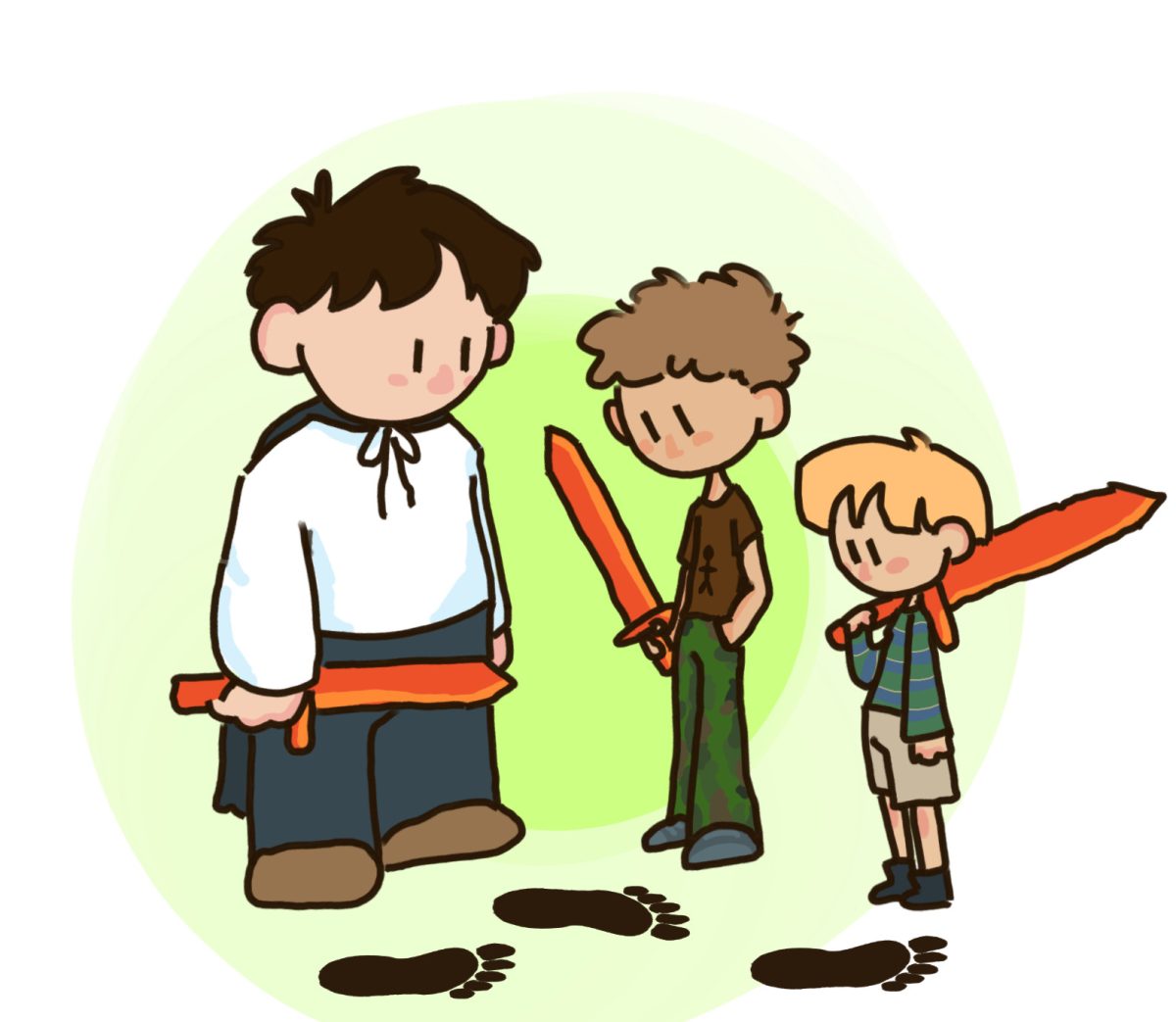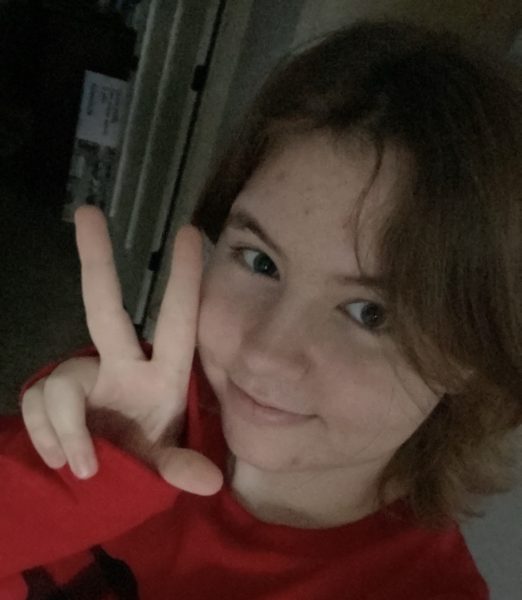I was 13 when I first discovered Mitski’s music. It was during COVID, and I was bored and alone. A friend of mine recommended her 2014 album, Bury Me At Makeout Creek, the title being a Simpsons reference, which I thought was cool. I had recognized the track “Francis Forever” from an episode of Adventure Time that my friend had shown me earlier that week, her screen sharing over Discord, both of us having a bit of a movie/TV night.
Bury Me At Makeout Creek has since become one of my favorite albums of all time. Its themes of self discovery, growing pains, love, and loss echoed current events in my life at the time I first listened to it.
I saw Mitski live in March 2022. I went to the show with my dad, the show was actually on his birthday. We both thoroughly enjoyed the concert, and although the album she was touring on, Laurel Hell, wasn’t one of my favorites, I still enjoyed the songs she performed from that album.
Laurel Hell, though, is a different story from her other works. Mitski had blown up online a few months after I first started listening to her, and Laurel Hell was her first album that came out since her rise in popularity. There have been tensions online surrounding Mitski and her work, with plenty of people either making fun of her dancing at shows, how one of her songs (“Should’ve Been Me” to be specific) sounded like a Mario Kart reject, and the misinterpretation of her songs. The latter is still a major point of contention when discussing her work.
Although more eyes on her may have been a reason that she wanted to quit, issues with her label and the industry in general seem to have been of greater weight.
Back in July, Mitski released a statement discussing how she wanted to keep making music, writing, “Ultimately, I recognized that I really want to keep making music, and I’m willing to take the difficult stuff with the wonderful stuff—like any job, or relationship, or worthwhile thing in life. So I renegotiated my contract with my label, and decided to keep making records.” The message was sent out to those on her mailing list following the release of the first single, “Bug Like An Angel,” off of her new album The Land Is Inhospitable and So Are We.
“Bug Like An Angel” is a song about addiction and is the first song on the tracklist. Themes of unhealthy coping mechanisms, self destruction, and alcoholism are littered throughout, almost likening drinking to forming a connection with a higher being. She tries to put the drink down, can’t, and justifies failing to do so by saying, “I try to remember the wrath of the devil/was also given him by God.”
“Bug Like An Angel” leads into one of my favorite songs on the album, “Buffalo Replaced,” a song whose meaning is more difficult to pin down, but my reading of it has been that it’s a statement about how we, as humans, have damaged and almost replaced so many aspects of nature with modern technology. its commentary on how it would be easier to ignore the negative effects of this replacement, but also how there is hope in a word that feels like it’s “ending.”
Following “Buffalo Replaced,” we have “Heaven,” which is a song I’ve added to my “play at my wedding” playlist. “Heaven” places heavy importance on romance, spending all the time one can with their partner. Mitski mentions little moments in time, like sipping on the coffee left over by your partner or sitting and listening to a storm. These things may seem insignificant in daily life, but moments like those are heavily cherished by her. The instrumental that plays at the end of the songs feels as if it’s come out of a Disney movie. Elegant piano, strings, and what might be a flute wrap up the track in a nice bow.
Themes of self-destructiveness pick up again in “I Don’t Like My Mind,” Mitski touching on how she uses music and her job as distractions, allowing her to avoid her thoughts. She knows being alone with her mind will lead her to do self-destructive or impulsive things, and will avoid being alone with her thoughts at all costs. The final lines of the song are her begging for her job, her distraction, to be taken from her. Mitski belts on this track for most of it, something not often found in her work. It gives the track this rawness, her belting reminiscent of one screaming against waves of thoughts and voices. It feels like a confession.
The next track on the album, “The Deal,” brings up the concept of selling your soul, but not for money or fame, but so you don’t need to feel so much pain anymore. Not even selling it, just giving it away. “I’d give it just to give.” However there is no joy in life without pain. For as much pain and suffering one may go through, having that taken away is a guarantee that you’ll never feel the joy again. “The Deal” is sonically reminiscent of Mitski’s earlier works, especially the ending, making the bold choice of having an absolutely insane drum solo at the end, crashing and colliding, maybe representing the internal conflict that comes with wondering if things would be better if you just didn’t feel at all.
“When Memories Snow” harks back to “I Don’t Like My Mind,” but instead of struggling with her mind as a whole, she’s specifically struggling with her past and memories. She describes having to shovel the memories, clearing a path in order to go out to the grocery store and live her life. Even when they melt, no longer blocking her way, she still hears them echoing in her mind as she thinks about her life. “And if I break/ Could I go on break?” is her asking if she can even take time off for her mental health and if her fans will understand or support her.
If there’s a single song on this album that you’ve heard, it’s most likely going to be “My Love Mine All Mine.” The song has blown up on TikTok, the official sound having 795.6k videos using it at the time I’m writing this. Mitski told Genius, “I wish this love in me, that is temporary, could go up to the eternal moon and keep shining down with it.” The song is essentially about knowing your love is defining; you are born with it and die with it, and how she wants her love to remain after she’s gone so others can feel it too. It’s a truly beautiful sentiment, and just like “Heaven,” “My Love Mine All Mine” is on my wedding playlist as well.
“The Frost” is about grieving a relationship; whether the other person in it has passed away or simply moved on, Mitski still feels like she’s stuck grieving what they had. Self-isolation is also a key theme in this song, with Mitski writing how it’s just “witness-less me” observing the frost that comes every winter, missing the other person who’s not there anymore.
“Star” begins with a slow synth, gradually building into a greater symphony. “Star” is about falling out of love with someone but looking back on that love with fondness. Like watching a star, this love is now untouchable, but so, so beautiful. “That love’s gone/ We just see it shinin’/ We’ve traveled very far,/ I’ll keep a leftover light/ Burnin’ so you can keep lookin’ up/ Isn’t that worth holdin’ on?”
“I’m Your Man” is probably my favorite song off the album. With this track, there’s been many interpretations, with it possibly being about someone regretting not loving their partner the way they should’ve while they were together. I think the track may be about her relationship with her fans, especially with “You believe me like a god” and “One day you’ll figure me out.” Time and time again, Mitski has had to grapple with the weight that more attention has brought upon her. Screaming during her sets, making fun of her dancing, people arguing the meanings of her songs, and it getting heated very quickly. Mitski, like many artists, has a fiercely devoted fan base, one that idolizes her in a way that puts her in a difficult position. We tend to put artists on a pedestal, believing they either can do no wrong or that they are incredible, flawless people. “One day you’ll figure me out/ I’ll meet judgment by the hounds” could be her pondering about what happens if she falls from the pedestal she’s been placed upon, once her fans realize who she is. The track closes out with the sounds of dogs barking, the final line being “You believe me like a god/ I betray you like a man.” Maybe we’ve finally realized she’s just a person, descending on her like a pack of hounds.
“I Love Me After You” feels like the polar opposite of “I’m Your Man.” Mitski takes back control of her life and of her art. She proclaims herself to be “King of all the land,” saying “Streets are mine/ The night is mine.” Mitski was able to renegotiate her contract with her label, giving her the reins to create an album unlike any of hers that have come before.
The Land Is Inhospitable and So Are We has been a long time coming, and although country was one of the last genres I ever expected from Mitski, the elements she uses blend in perfectly, giving us a tale of everlasting love, loss, self-destruction, false idols, and taking back control of your life.
This album, like Bury Me At Makeout Creek before it, has reflected things I’m struggling with in my own life eerily well. I don’t talk to that friend who recommended Bury Me At Makeout Creek anymore, and “The Frost” represents so many feelings I have about falling out with her. I wish I could tell her to listen to this album, but things change, people change, and The Land Is Inhospitable and So Are We knows that.
Favorite Track: “I’m Your Man”
Overall Rating: 9/10


